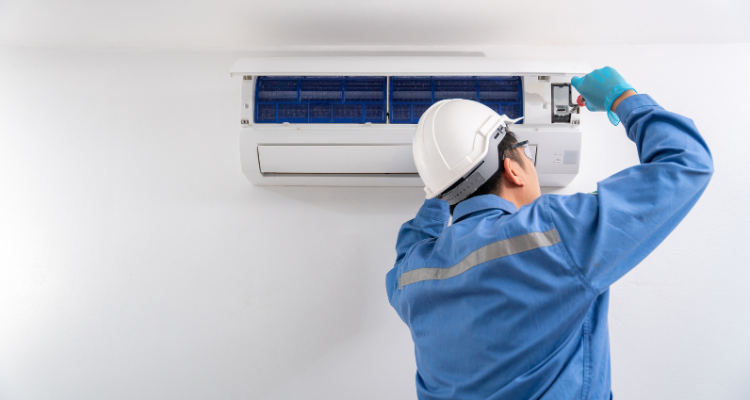
Your home is a place where you want to be comfortable and safe throughout the year. Yet the seasons themselves can dramatically affect indoor air quality and comfort—and even your heating or cooling bills. At Aire One Keswick, we educate homeowners on how each season affects air quality and what you can do to maintain a healthy living environment.
Spring: Pollen and Allergens
With spring comes blooming flowers, better weather, and more pollen. Pollen and other allergens are easily brought indoors when you come in from the great outdoors.
- Sneezing, itchy eyes, and congestion
- Increased problems for people with allergies and asthma.
- Pollen collects on surfaces and in HVAC systems.
Tips for Spring:
- Keep the windows shut during high pollen times
- Install high-efficiency air filters in your HVAC system
- Get a spring HVAC checkup to ensure everything’s clean and working properly.
Summer: Heat, Humidity, and Mould
You see hot summer weather and increased moisture in the air can provide the perfect environment for mould and bacteria to grow, which will have a negative impact on indoor air quality, as well as your lung health. Common issues include:
- Basement or poor air circulation causing musty odors
- Increased risk of respiratory issues
- Allergens: In moist areas, dust mites proliferate
Tips for Summer:
- Use dehumidifiers in damp areas
- Keep air conditioning systems well-maintained
- Clean or change air filters frequently to minimize mould and dust.
Fall: Falling Leaves and Outdoor Debris
With leaves dropping and winds rising, debris can easily brush or blow into your living space through open windows, doors or vents. This can result in:
- Household dust and allergens in the home
- Heating and cooling systems are working harder because of clogged filters
- Decreased efficiency and indoor air circulation
Tips for Fall:
- Unclog gutters and vents to prevent blockage by debris.
- Change air filters and book HVAC servicing
- Weather Seal windows and doors to get outdoor particles out
Winter: Dry Air and Indoor Pollutants
Winter air is cold and can be dry, while indoor heat – even with a humidifier – can lower the humidity enough that you notice:
- Simple, itchy skin, eyes and lungs
- Higher virus and bacteria transmission
- Dust and particulates from closed windows and indoor activity
Tips for Winter:
- Keep the indoor humidity at an ideal level (30‒50%) using a humidifier
- Another is to change filters regularly and keep ducts and heating systems clean.
- Ventilate more often by opening windows to increase the flow of fresh air.
Maintaining Year-Round Air Quality
To keep indoor air fresh and healthy during seasonal changes:
- Regular HVAC inspections and maintenance.
- Purchase superior air filtration systems
- When at home, try to keep the house environment and belongings free of dust, pollen, and mould.
- Monitor Humidity Levels and Stack as Appropriate with Humidifiers or Dehumidifiers
Conclusion
Each season presents a challenge to your home’s air quality. By being aware of these effects and taking proactive measures, your home can remain a safe and comfortable place for your family.
At Aire One Keswick, we specialize in air treatment solutions for homeowners, from maintenance to upgraded air quality systems that will help you breathe easier all year long.




